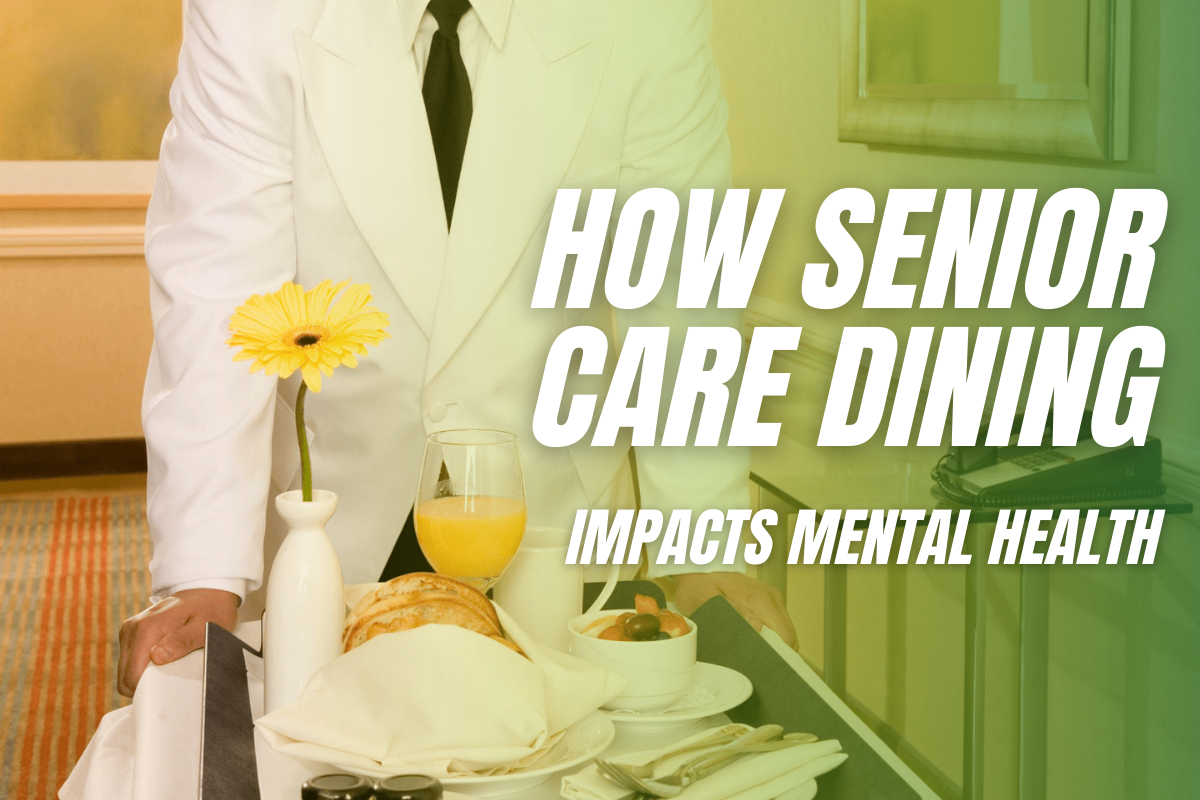
In healthcare, mealtimes can be some of the most anticipated and enjoyable times of the day.
There’s no doubting the fact people love food. We love the way it tastes, the way it feels in our mouth, the way it nourishes us. We love the socialization that usually comes with food. Dining is an experience. And most important, it’s good for our mental health.
Nowhere is this more true than in our senior care and long term care communities. According to one study on senior care and foodservice, “mealtimes are a mainstay of life through which residents’ experiences are characterized, exemplified, and magnified. In the study, the three themes that impact a resident’s experience were emotional and psychological connections with other residents, managing competing interests with limited resources, and familiarity and routine.
Food and meals touch on all three.
1) Food brings residents together. Though traditionally in communal dining areas, meals are enjoyed together and provide opportunities for conversation and socialization.
2) Food provides a sense of control. When residents have meal choice, when they can literally decide what goes on their plate and what doesn’t, it provides an element of control that can often be hard to come by for residents in long term communities.
3) Food provides routine. For many in long term communities, mealtimes provide needed stabilization in terms of day-to-day routines. When you know you’re going to eat lunch every day at 11:30, it provides welcome familiarity
Senior Care Foodservice in the Age of COVID
Today, of course, we’re living in an entirely different world. The processes by which food is served in these types of communities have been turned upside down, and foodservice directors are doing whatever they can to help residents still achieve the three points above, the points that are so critical to the mental health and well-being of our seniors living in these communities.
The reality is, communal dining has pretty much been taken away from us due to the potential exposure created by the Coronavirus. Operations across the country are moving to models where food is ordered and delivered directly to residents’ rooms.
In terms of socialization, foodservice staff need to be creative. They need to understand the personal delivery of food in a resident’s room is still the highlight of the day in many cases, but now that highlight comes without the ability to dine with friends. Those brief interactions when food is delivered become critical for the well being of residents.
Choice is still choice. In some ways, the concept of calling in an order and receiving it delivered can be kind of fun for residents. Play up that angle. When residents are restricted from the dining room, creative room service can be a fun way to provide some joy.
And, lastly, food is still part of the routine. Though that routine may be a bit different, it still provides consistency in someone’s day, allowing them to feel reassurance that what someone is used to will continue.
Just because COVID-19 has changed senior care foodservice doesn’t mean everything is changed for the worse.
Discover the basics of this new era of senior care foodservice by learning more from our resident senior care expert. From new and creative ways to deliver food, as well as the systems that need to be in place to accomplish it, watch on-demand, or download, our webinar “Customer Confidence in Food Safety“.
